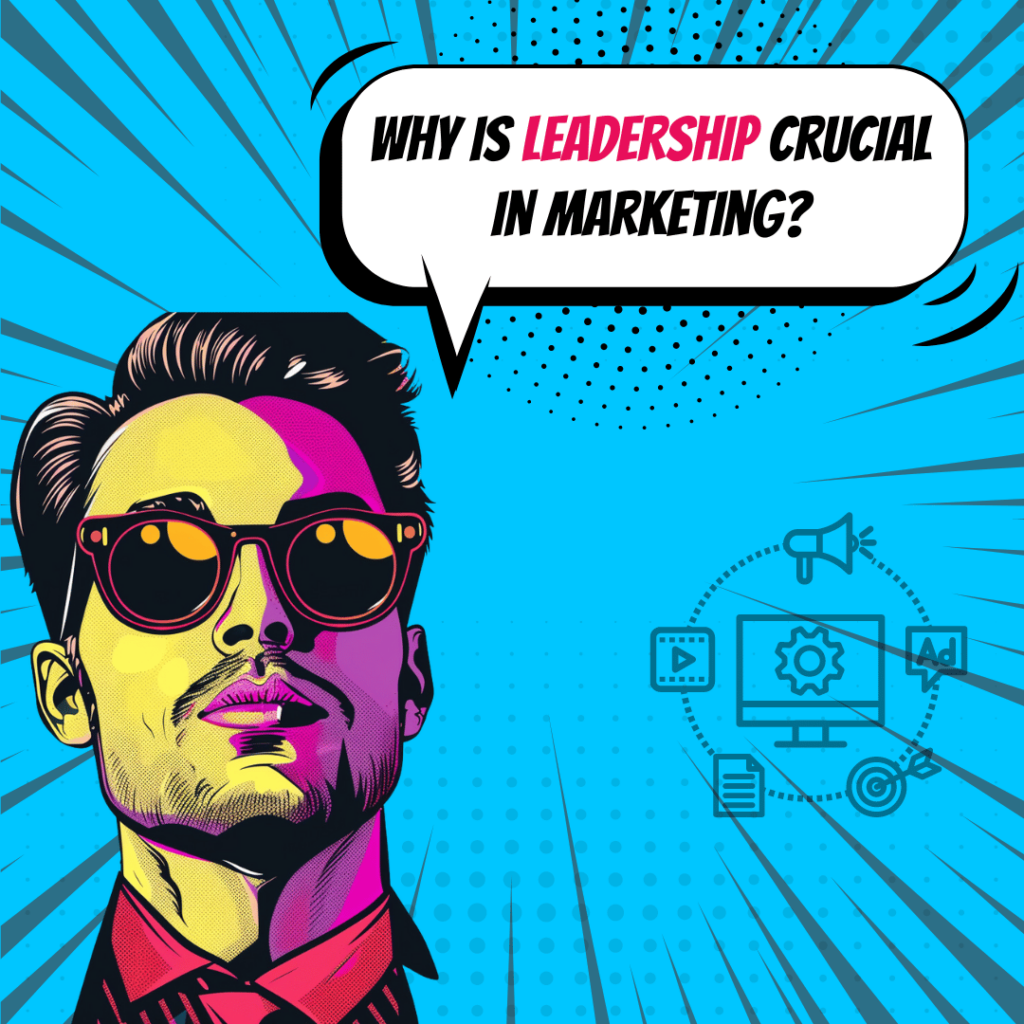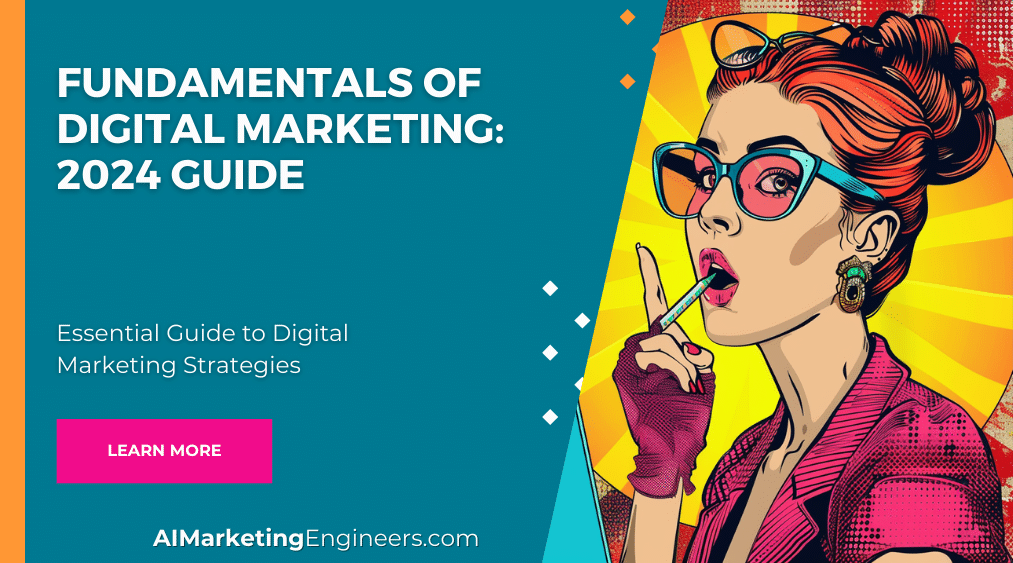Key Takeaways
✅ Visionary Leadership is Pivotal: The ability of leaders to create and communicate a clear, compelling vision is critical for aligning teams, inspiring stakeholders, and crafting a powerful brand narrative that drives market presence and success.
✅ Operational Agility and Emotional Acumen: Effective marketing leadership is marked by agility in responding to market changes and a deep emotional understanding that connects with consumers and employees on a human level, fostering loyalty and engagement.
✅ Purpose-Driven Strategy: In a world where consumers prioritize social and environmental responsibility, marketing leaders need to anchor their strategies in purposeful, values-driven narratives to capture the hearts and minds of customers and employees, creating a sustainable competitive advantage.
Introduction
Imagine a world where businesses transcend the ordinary, where marketing isn't just about selling, but about creating a legacy—a world where the leader is the lighthouse guiding the brand through unchartered waters to success. This visionary journey is the heart of our discourse in "The Role of Leadership in Marketing: How Effective Leadership Drives Success." Leadership in marketing is the catalyst that sparks innovation, builds enduring relationships, and carves out a niche for a brand in the bustling market landscape.
It is the strategic maestro conducting every element of the marketing orchestra to perfection, from the emotive chords of customer engagement to the harmonious rhythm of team synergy. Dive in as we unveil how influential leaders are not just steering the ship but charting a course for triumph that resonates with every soul it touches. Join us as we explore the potency of leadership and its indomitable influence on the success of marketing ventures.
Sustaining Market Momentum
- Crafting a Strategic Vision: Visionary leaders are pivotal in creating a forward-looking brand narrative. They formulate the strategic direction required to navigate and compete in the market.
- Inspiring Team Alignment: These leaders utilize their vision to inspire and align their teams, ensuring that all marketing efforts push in the same direction, thereby increasing efficiency.
- Building Brand Resonance: Through consistent and compelling storytelling, they help establish a strong and enduring brand image that fosters deep customer relationships.
Key Statistic: Transformational leaders inspire and motivate their teams to achieve marketing goals.
The Operational Impact of Effective Marketing Leadership
- Adapting to Market Dynamics: Effective leaders oversee the adaptation of marketing strategies in response to new trends and technologies, driving innovation in the process.
- Operational Excellence: They optimize marketing operations to enhance efficiency, cut costs, and improve time-to-market for campaigns and products.
- Driving Culture of Improvement: By promoting a culture of feedback and continuous learning, these leaders ensure the marketing team's capabilities evolve with the market.
Key Statistic: Customer-oriented leaders focus on understanding and meeting customers' needs.
The Role of Emotional Intelligence in Marketing Leadership
- Building Employee Engagement: Leaders with high emotional intelligence build motivated, dedicated teams by understanding and addressing their needs and concerns.
- Connecting with Customers: They use empathy to better connect with customers on an emotional level, thereby building trust and loyalty.
- Shaping Brand Perception: Authentic leadership helps shape a brand that people can relate to, believe in, and wish to support over the long term.
Key Statistic: Servant leaders prioritize the needs of their team members and focus on developing their skills and abilities.
Purpose-Driven Leadership in Marketing
- Aligning with Social Missions: Purpose-driven leaders align marketing strategies with the organization's core values and social missions, enhancing brand integrity and customer engagement.
- Attracting and Retaining Talent: By offering a fulfilling workplace that aligns with employees' personal values, companies can attract top talent who are invested in the brand's success.
- Activating Brand Advocacy: A clear and authentic sense of purpose mobilizes not only employees but also customers to become brand advocates, amplifying marketing impact.
Key Statistic: There are several recent studies that have examined the role of leadership in marketing.
AI Marketing Engineers Recommendation
The role of leadership in marketing is multifaceted and deeply influential as it directly impacts the strategic direction, culture, efficiency, and innovation within the marketing department and the broader organization. Effective marketing leadership is essential for navigating the rapidly evolving digital landscape and leveraging complex data analytics for informed decision-making. Here are key components of marketing leadership that should be embraced and promoted:
1. Vision and Strategy: Leadership in marketing is responsible for crafting and communicating a clear vision and strategy. It determines the position of a brand or product in the market, sets goals, and outlines the path to achieve them. Leaders must harness market research, consumer behavior insights, and competitive analysis to develop strategies that drive growth and profitability.
2. Data-Driven Decision Making: Leaders must encourage a culture of data analytics, where decisions are based on empirical evidence rather than intuition. This involves investing in the right tools and platforms that can aggregate and analyze large sets of data to glean actionable insights. Data from customer interactions, campaign performance, market trends, and more can guide strategic decisions and optimization efforts.
3. Innovation and Adaptability: The digital marketing environment is continually evolving, with new channels, technologies, and approaches surfacing regularly. Marketing leaders must foster an environment of innovation and encourage their team to experiment with new ideas while being adaptable to change. This includes keeping abreast of AI applications in marketing, such as predictive analytics, chatbots, and personalized content delivery.
4. Collaboration and Communication: Effective leaders promote cross-functional collaboration and maintain open lines of communication with other departments. Since marketing initiatives often require input and support from IT, sales, customer service, and other areas, it is crucial to create synergies within the organization to ensure coherent brand messaging and successful campaign execution.
5. Talent Development and Empowerment: Leaders play a critical role in identifying and nurturing talent within the marketing team. By providing training, resources, and opportunities for professional growth, leaders can build a highly skilled team that is ready to tackle complex challenges. Empowering team members to take ownership of projects encourages innovation and accountability.
6. Performance Measurement and Analysis: Marketing leadership must define key performance indicators (KPIs) and establish a robust framework for measurement and analysis. Regularly reviewing performance against these metrics enables leaders to pivot strategies as needed, optimize campaigns, and demonstrate the ROI of marketing activities to stakeholders.
7. Ethics and Responsibility: With the increasing importance of brand authenticity and consumer trust, leaders must ensure that marketing efforts align with ethical standards and social responsibility. This includes respecting customer privacy, promoting truthful messaging, and advocating for sustainable business practices.
Conclusion
In today's marketplace, the role of leadership in marketing transcends the operational and strategic; it acts as a beacon of inspiration, a bridge for connection, and an architect of value creation. Leaders who craft compelling visions set the stage for market success. They champion change and operationalize strategies that respond to the ever-shifting market landscape. With emotional intelligence at the helm, these leaders foster deep-rooted connections that establish trust and authenticity in the brand.
Furthermore, purpose-driven leadership amplifies the resonance and impact of marketing efforts by aligning them with the values and concerns of consumers and employees alike. Ultimately, effective marketing leadership is about weaving these various threads into a cohesive narrative that shapes the fabric of brand perception, engenders customer loyalty, galvanizes employee commitment, and carves out a competitive edge in the crowded marketplace.
FAQs
Leadership plays a crucial role in marketing. A marketing leader is responsible for setting the direction, developing marketing strategies, and implementing them to achieve organizational goals. A marketing leader needs to be a strategic thinker, an effective communicator, and a good decision-maker. They must also have strong relationship-building skills to work with other departments and stakeholders.
A marketing leader has a significant impact on the success of a brand. They set the tone for the company culture and communicate the brand's values and purpose to the entire organization. A marketing leader also sets the marketing strategy and ensures that all marketing activities align with the brand's vision, mission, and values. They also develop effective campaigns to increase brand awareness and attract new customers.
Marketing leaders face many challenges, including:
- Developing an effective marketing strategy
- Communicating with other departments and stakeholders
- Aligning marketing activities with the overall business goals
- Measuring the effectiveness of marketing activities
- Keeping up with the latest marketing trends and technologies
- Managing a team of marketers and resources
There are several ways to measure the effectiveness of marketing activities, including:
- Sales revenue generated by marketing campaigns
- Lead generation
- Social media engagement
- Website traffic and conversion rates
- Brand awareness and recognition
- Competitive analysis
- Customer feedback and satisfaction
- Marketing ROI (return on investment)
By measuring the effectiveness of marketing activities, a marketing leader can determine what works and what doesn't, adjust their strategy accordingly, and make data-driven decisions.
A marketing leader can improve their leadership skills by:
- Fostering a culture of accountability and continuous improvement
- Providing regular feedback to team members
- Delegating tasks and responsibilities effectively
- Encouraging team members to take risks and experiment
- Encouraging a collaborative and inclusive work environment
- Continuously learning and improving their skill sets
- Embracing new technologies and trends
- Building relationships with key stakeholders and peers









